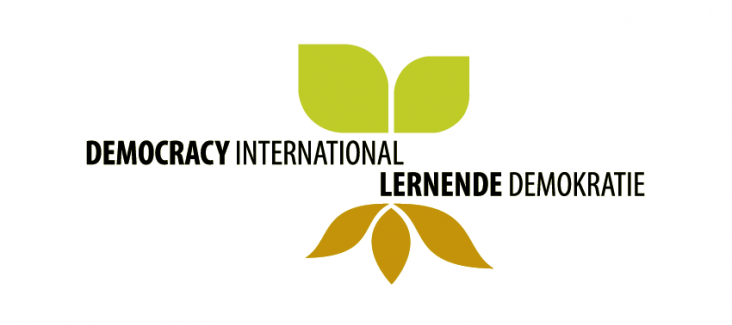Could you explain what learning democracy is?
Generally speaking, in all types of organisations, if you don't constantly evaluate and develop what you are doing and how you are doing it, at some point you will end up at a dead-end. This dead-end feeling is something that many people experience in our society today, be it on ecological, democratic or financial issues. More and more, as different studies and surveys show, large sections of the population have the feeling that we cannot go on like this. They feel that the way we practice politics today is not sustainable and at least in part, this is because of the way we organise our democracy. It’s because of how we determine the issues we want to solve, how we find solutions to those, and how we decide and implement those solutions. In fact, the way in which we make these decisions has changed very little over time.
No commercial company could afford not to constantly rethink the way it produces. We call this concept ‘learning organisations’, the term ‘learning democracy’ is borrowed from that. One of the main reasons there are so many successful companies in Germany, especially in mechanical engineering, is because they take the time to think about how to do things better. They evaluate how they work together with their employees - this is very important, that it is participatory - their customers and suppliers. That's what it's really about. A learning democracy is a society that tries to be better than it is at the moment, tries to function better than it is functioning!
In other words, it is a continuous process and it is a process where learning does not have a negative aftertaste, where people don’t go "Oh God, not again", but where learning is seen as something that is natural and self-evident like breathing: “Yes of course we take this time! Let's look at how we have done this before and think about how we can do it better”.
So, we need to create a culture of learning about democracy in our societies?
Yes, but it is important not to reduce the issue of learning democracy to citizen participation. It’s tempting to think that learning democracy is just about how citizens can have a stronger influence in politics and democracy. People also often mistake learning democracy for learning about democracy and how it works. These are of course very important issues, but that is not the focus of our project. A lot is already happening in this field.
How will the Academy for Learning Democracy improve our democracies?
The focus of what we do is on the process of “political value creation”, the way in which we produce common goods together. We try to solve problems together, not just the state and administration, but also parties, civil society, business, churches, universities - all institutions in a society. In a democracy, all contribute to strengthening it with their own talents, with what they do well. Communities can only really develop further if they have built this learning partnership with different actors. The Academy for Learning Democracy focuses on how we can achieve this process of learning.
The Academy for Learning Democracy has three goals. Firstly, we want to draw attention to this topic. We need to make it clear that if we don't start investing more time, energy and competences in rethinking how we practice politics, how we practice democracy, things will go wrong. Part of our job now is to campaign, to bring this issue to the public, but also to administrations, political actors and foundations. It is important to make it clear that we need competences, we need people, resources and new jobs to tackle this issue. In some ways, we need a separate policy area for a conscious democracy policy.
The second pillar, is the Academy in the narrower sense: a school for democracy developers. Empowering, training and educating people to develop these learning processes, whether they work for political administrations, civil society or businesses, or even normal citizens. They can come from very different backgrounds, trying to make a difference on the local, regional, federal or European level. We need democracy champions! Just as companies today have entire departments working on organisational development, continuously developing new instruments, with their employees, and designing this learning process themselves. In every municipality, in every administration, in every state, in every ministry we need professionals like this, who can moderate such cross-cutting learning processes. We want to train these learning facilitators. We work together with a number of partners for this, for example The University of Tübingen has already pledged its support.
Thirdly, but this is really more in support of our two main goals, we want to deepen and widen research into the topic of democracy development. We want to explore what examples of Learning Democracy already exist and publish that knowledge to make it accessible. We want to develop teaching materials, curricula and so on. We also need a quality assurance: how do we ensure that it’s not just superficial learning, but really transformative learning that takes place? We need to make sure that the competences that are developed and conveyed through the Academy really enable people to shape processes in their communities in a sustainable way. These are the goals of the Academy Learning Democracy.

